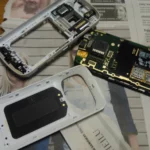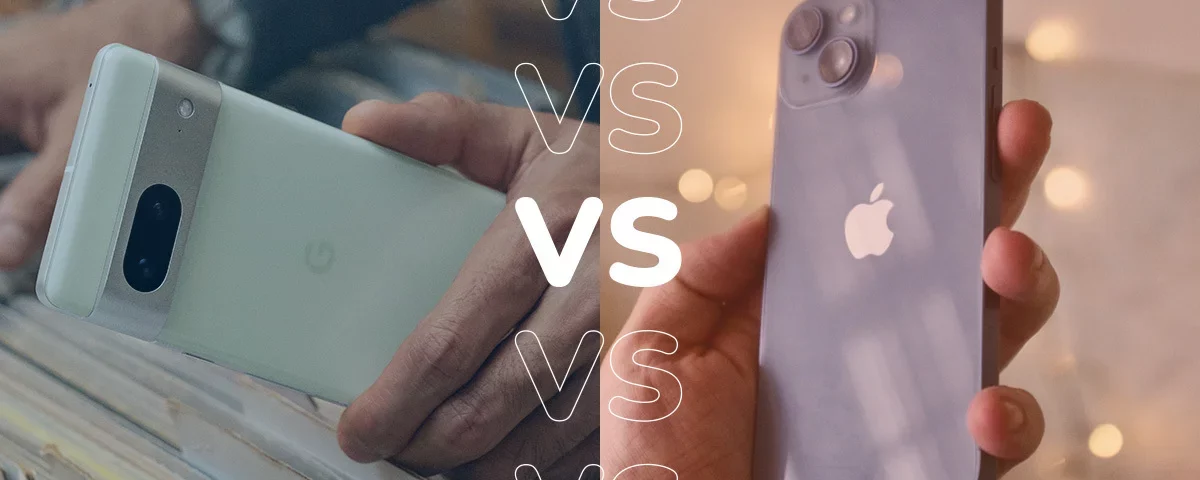


Repair vs. Replace: Which Is the Better Option for Your iPhone?
September 18, 2024


The most common cell phone repairs made easy-from broken screens to replacing batteries.
September 27, 2024The debate between the iPhone and Android has become one of the longest-lived and most defining rivalries of our time, running for over a decade and having a significant impact on how we use technology today. This clash did a lot more than fire a bushburn in the hearts of tech enthusiasts; this forced large-scale innovations, changing the way people interact with their devices. Let’s take a walk through what brought about this rivalry, some of the pivotal moments of this battle, and the greater ramifications.
The Genesis of the Rivalry
Well, upon its release to the market in 2007, it completely changed the game of smartphones. Boldly, Apple didn’t just introduce a new phone but had to reinvent the whole concept of what a smartphone actually is: sleek aesthetics, intuitive touch interface, revolutionary App Store-the mobile technological paradigm got redefined. Something that offered simplicity with sophistication changed our perception toward phones.
Then entered its mighty counterpart-Android. First developed by Android Inc and later bought in 2005 by Google, Android was supposed to be an open-source platform that would break down the hegemony of the iPhone. In 2008, the first Android phone hit the market: HTC Dream. More flexible and customizable compared to Apple’s tightly controlled ecosystem, Android targeted customers who wanted more from their phones. This open-ended approach allowed the real host of manufacturers to create their own versions of Android devices, and there could be no exaggeration in stating that a plethora of options were facilitated for consumers.
Defining Moments in the Competition
The iPhone-Android rivalry has seen some noted moments or defining points, some of which underlined different aspects of their competition:
1. Personalization vs. Standardization: The most salient features of the iPhone models set them apart from those of Android phones with regard to the nature of customization that one can enjoy. iOS is greatly regularized in performance and feel across all devices, hence easier to use but less flexible. Android, on the other hand, offers close to endless customization: the ability to change how the device looks and functions. This is, in fact, configurability that has been one of the major selling points, intended for those who want complete control over the customization of their device.
2. Design Innovations: Apple’s iPhone has always won accolades for its drool-worthy design. From the aluminum casing that it first introduced to the sleek glass finishes it has recently brought in, Apple has raised the aesthetic bar high. In return, the Android manufacturers including Samsung and OnePlus have matched or outmatched. With its Galaxy series, Samsung brought in curved displays and high-resolution screens. Google Pixel phones have become synonyms for superior camera technology. Both companies have continuously raised the bar higher and higher for design and hardware standards.
3. Ecosystem Integration: The ecosystem is amongst the major plus points in favor of Apple, the way an iPhone, iPad, and Mac integrate with devices from the same company to seamlessly connect the user experience. Seamless continuity features include AirDrop, Handoff, and iCloud-all making transitions between Apple devices easier. On the other hand, it is the more open Android framework that extends the possibility of wider compatibility with an extremely wide range of devices and services-starting from smart home gadgets to third-party apps-all at the cost of less integration.
4. App Stores and Software: App Stores have long been one of the most crucial theatres in their overall competition via the App Store and Google Play Store. Apple’s App Store is very well-liked due to its stern scrutiny in the review process of apps, which brings high-quality applications but often makes it very restrictive for developers. On the other hand, the Google Play Store allows for much more room than the App Store does, but it does at the cost of both security and control.
5. Privacy and Security: Privacy has become the hottest of hot-button issues, and Apple positioned itself as one of the most aggressive advocates for user privacy. Features like App Tracking Transparency, in conjunction with stalwart encryption, are the core of Apple’s efforts to protect user data. While Android has made its platform more private, Google’s collection practices are still called into question, as are the security weaknesses inherent in the more open nature of the platform.
Impact on Consumers and Culture
This trend is a creation not only of the trends in technology but also of consumer culture shaped by this competition between the iPhone and Android. To many people, the question of iPhone versus Android goes beyond technology into the spheres of personal preference and lifestyle. Many iPhone users brag about the premium status of the brand and seamless integration, while Android users tout versatility and the variety the platform offers.
But possibly the most immediate result of such competition was an onslaught of technological innovation. New iPhones and Androids rolled out, each boasting new innovative features or improved systems-from advanced camera technology to even faster processors. Competition forces each of the two platforms into nonstop innovation, which upgrades the customers’ technological experiences in turn.
The Future of the Rivalry
It would be very likely that on this stage of development, where themes such as artificial intelligence, 5G, and augmented reality are concerned, the next few years will little doubt see both devises in a battle for supremacy and in development toward the next technological revolution.
This decade-plus rivalry between the iPhone and Android was, until now, more than just a fight between those giant companies; it shaped the way humans used technology and influenced their day-to-day life. Be it an staunch supporter of one of these platforms or an enthusiastic lover of strong points in both, one thing is certain: this competition has taken large bites out of the tech world and will more than likely continue to for years to come.

